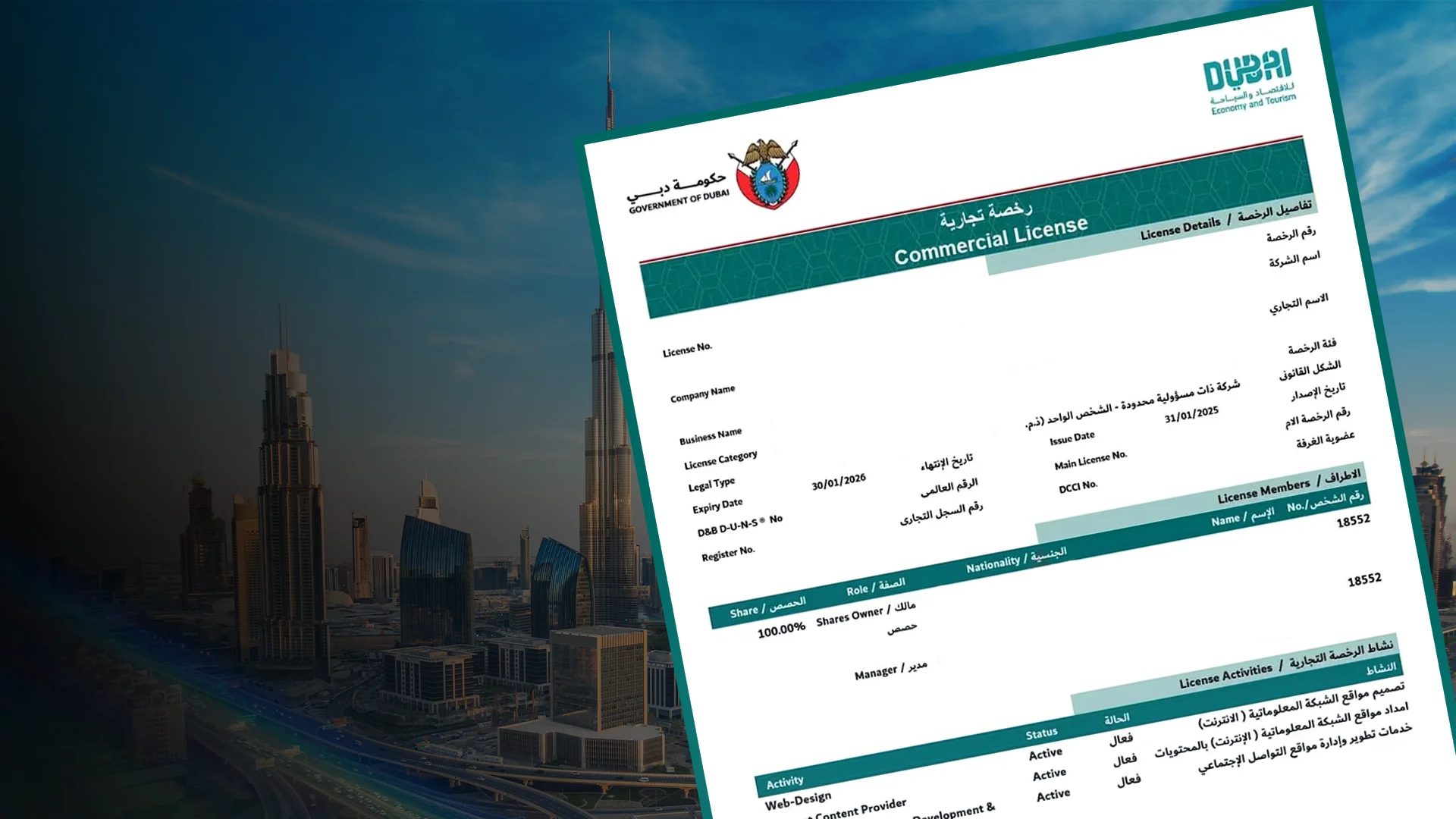
Topic Summary
1. Definition and Importance of UBO
The Ultimate Beneficiary Owner (UBO) refers to the natural person(s) who ultimately owns or controls a company. In the UAE, identifying the UBO is crucial for promoting transparency, preventing money laundering, and ensuring compliance with international financial regulations. Meydan Free Zone companies must accurately disclose their UBO to maintain good standing and comply with regulatory demands.
2. UBO Identification Thresholds
In the UAE, the threshold for identifying a UBO generally involves individuals with a beneficial ownership interest of 25% or more in the company. This includes ownership through direct or indirect means and control via voting rights or other mechanisms. Meydan Free Zone companies must conduct thorough due diligence to identify each UBO meeting this threshold.
3. Mandatory Submission and Declaration
Companies operating within Meydan Free Zone are required to submit the names and relevant details of their UBOs to the zone authority and, in some cases, to the UAE’s central registry. This declaration must be kept up-to-date to reflect any changes in ownership or control structure, ensuring continuous regulatory compliance.
4. Compliance and Penalties
Failure to comply with UBO disclosure requirements in the Meydan Free Zone can result in fines, suspension of business activities, or even revocation of the company licence. Companies must prioritise accurate and timely UBO reporting to avoid reputational damage and legal consequences.
5. Benefits of UBO Compliance
Adhering to UBO requirements not only fulfils legal obligations but also enhances business credibility, strengthens investor confidence, and facilitates smoother access to banking and financial services. For Meydan Free Zone companies, this compliance solidifies a trustworthy business environment aligned with international standards.
If you are running a business in the UAE, one of the world’s most secure business environments, understanding Ultimate Beneficiary Owner regulations is essential. It’s not just about ticking off a compliance checklist— it’s about keeping your business future-proof, financially secure, and reputation-strong.
Whether you are setting up a company, or a scaling enterprise, UBO compliance is necessary to protect your business because these rules help identify who is controlling a company real-time.
In fact, the UAE Ministry of Economy confirmed that more than 700,000 private sector companies have already complied with UBO requirements — a clear sign of the system’s maturity, reach, and reliability.
This guide breaks down what these rules mean for you, and how you can stay compliant with confidence.
Why Ultimate Beneficiary Owner Regulations in the UAE Matter
UBO regulations are designed to:
- Prevent money laundering and terrorist financing
- Build trust and a good relationship with banks, regulators, and investors
- Align UAE’s regulatory framework with FATF’s UBO definition and global benchmark
What happens if a company doesn't comply?
- Fines imposed up to AED 100,000
- Trouble opening up bank accounts
- Cancellation of trade license
Who Qualifies as a UBO in the UAE
The UAE government defines a UBO (Ultimate Beneficiary Owner) as someone who:
- Owns 25% or more of company shares or voting rights
- Has the power to dismiss or appoint directors in the company
- Can impose control indirectly
Visualise these instances: There could be someone behind a nominee shareholder or director, or the company could be owned through multiple layers — the UBO would be the person at the top of that chain.
What You Should Maintain in Your UBO Register
If you’re running a UAE-based business in Meydan Free Zone, preparing a UBO register is a must. There are three main registers you should pay attention to:
A Checklist for UBO Compliance
Companies must do these things to stay compliance-friendly:
- Identify your UBOs: Figure out who really controls your company. It’s vital to know that if someone owns more than 25% of your company, they’re the UBO. Pay attention to collecting full details and sorting out documentation.
- Setting up and maintaining registers: Keep the three main registers updated and ready to show authorities when needed.
- Submit your UBO declaration: You should file your UBO declaration with your licensing authority. If you are a Meydan Free Zone license holder, you should submit either during business setup if you’ve recently gone live, or within 60 days if you’re an already existing business.
- Make sure you update any changes in 15 days: If your company structure changes, where maybe a shareholder leaves or someone else gains control, you must update your records and notify authorities within a span of 15 days.
- Respond to the Registrar on time: If the Registrar asks for supporting documents or clarification, you’ll need to respond within 14 days.
The good news?
Meydan Free Zone makes sure all of this is handled smoothly from day one, so that you can stay focused on growing your business, without sifting through hefty paperwork.
Common Mistakes To Avoid In UBO Compliance
Any business can slip up when it comes to filling out a UBO declaration. These mistakes can cause fines or delays, so here’s what you should look out for:
Ultimate Beneficial Owner (UBO) compliance is mandatory for most UAE businesses — including those with sole founders or 100% foreign ownership. Don’t skip it.
A delay, a missed detail, or a slight error could translate to a red flag. Keep your UBO register updated to avoid unnecessary setbacks.
If your ownership structure includes multiple layers, you must disclose the individual behind the final layer. Trace it all the way to the source.
How Meydan Free Zone Helps You Stay Compliant
At Meydan Free Zone, we make UBO compliance effortless from day one. Our efforts in compliance are weaved into your setup, not as an afterthought.
How do we keep you covered?
- Automatic UBO mapping: Tracing ownership at every level, even through complex structures
- Filing support: We file your UBO declaration on time, every time — whether you’re launching newly, or updating
- Smart alerts: Tracking your changes to alert you when updates are due, ensuring the 15-day deadline is met.
- Compliance-ready data: Your UBO information formatted to be clean, compliant, and ready to go when needed.
In Conclusion
One thing’s clear: when your structure is clear and compliant with beneficial ownership transparency, everything else moves faster — your bank account, visa, and business growth. So whether you’re a solo entrepreneur or scaling fast, stay ahead of regulations to take your business from Dubai, to the world.
With Meydan Free Zone, you get a clear roadmap, digital tools, and real-time support to make compliance seamless. We’ll guide you through every step — from UBO registration to full business setup.
To understand the official requirements in more detail, you can also refer to UAE’s central resource for beneficial ownership guidelines.
Meydan Free Zone is where your business picks up momentum. Let’s get started.
FAQs
1. Who is an Ultimate Beneficial Owner in the UAE?
This is a regulation that requires companies to identify who ultimately owns or controls a business. This is to ensure benefical ownership is transparent and aligns with UAE’s push for international compliance and more integrity.
2. Who needs to submit a UBO declaration in Meydan Free Zone?
All companies in Dubai must do so, unless fully government owned or exempt. It’s a key part of staying compliant with UAE’s AML CFT beneficial owner requirements.
3. What’s the ownership threshold for being considered a UBO?
Anyone owning or controlling 24% or more of a company, either directly or indirectly is considered an Ultimate Bneneficial Onwer and must be declared under beneficial ownership rules in the UAE.
4. How does UBO compliance relate to AML CFT requirements?
UBO rules are part of the UAE’s AML CFT requirements, designed to fight against financial crimes. By identifying the real owner, companies can support the prevention of money laundering efforts and contribute to a safer financial ecosystem.
5. How often do I need to update my UBO details?
You should update your UBO record within 15 days of any change in ownership or control. Make sure you do everything on time because it keeps you compliance-friendly with UAE free zone regulations, especially if your business is established in Meydan Free Zone.
6. How does Meydan Free Zone help with UBO compliance?
Think real-time guidance, auto-reminders for updates, and a fully integrated compliance dashboard so that you never miss a deadline and incur a penalty. We make compliance easier, automatically.
7. Is UBO filing included in Meydan Free Zone’s business setup procedure?
Yes, of course. UBO registration is built into your setup journey at Meydan Free Zone, along with an array of other compliance procedures like KYC or taxation. We simplify everything, not just your licensing. From ownership tracking to submitting hefty documentation, we keep you compliant from day one.































